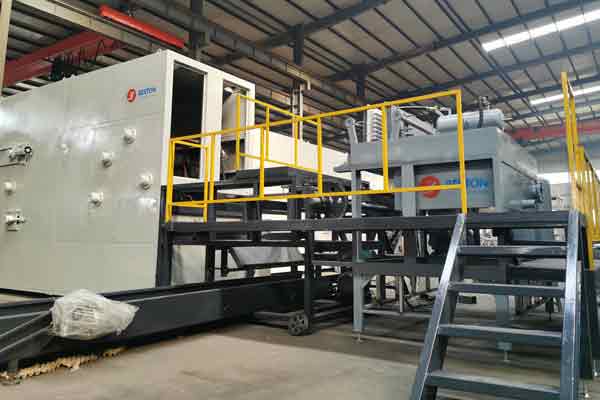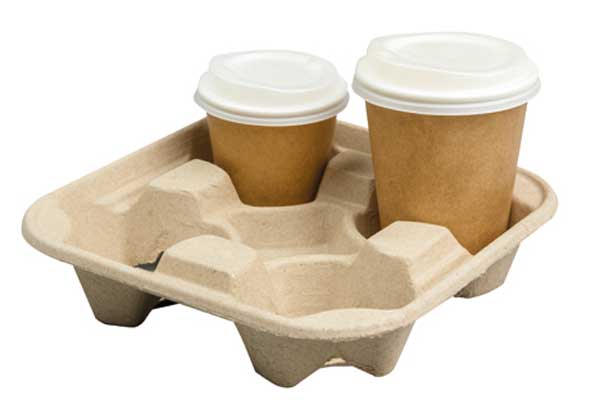Pulp molding machines have emerged as a revolutionary technology in the packaging and product manufacturing industries. With a focus on sustainability and eco-friendliness, these machines utilize recycled paper pulp to create a wide range of products, including packaging trays, disposable tableware, and industrial components.
The following will delve into the functionality, benefits, and applications of Beston Group‘s pulp molding machine.
I. Understanding the Operation and Components of Pulp Molding Machine
Pulp molding machine employs a combination of mechanical and vacuum technologies to convert recycled paper pulp into various molded products. The process typically involves the following stages:
- Pulping: Recycled paper or cardboard is first broken down into a pulp using water and additives. This mixture is then refined to achieve the desired consistency.
- Forming: The pulp is poured into specially designed molds that define the shape and structure of the final product. The molds can be customized to produce different types and sizes of products.
- Drying: After molding, the products are transferred to a drying system where excess moisture is removed. This is typically done using heat or air drying methods.
- Finishing: Once dried, the products undergo finishing processes such as trimming, cutting, and quality control checks to ensure they meet the required standards.

II. Environmental Advantages of Pulp Molding Machine
Utilization of Recycled Materials: Pulp molding machines contribute to sustainability by utilizing recycled paper pulp as the primary raw material. This reduces the reliance on virgin fibers, conserves natural resources, and reduces the amount of waste sent to landfills.
Biodegradability and Compostability: The products produced by paper tray machine are inherently biodegradable and compostable. Made from organic materials, such as paper pulp, they can naturally decompose over time, reducing environmental impact and waste accumulation.
Reduced Carbon Footprint: Compared to traditional manufacturing processes, pulp molding machines require lower energy consumption and produce fewer greenhouse gas emissions. The use of recycled materials and energy-efficient drying methods further contribute to their eco-friendliness.

III. Diverse Applications of Pulp Molding Machine
Packaging Industry: Pulp molding machines are widely used in the packaging industry to manufacture various types of trays, inserts, and cushioning materials. These packaging solutions offer excellent protection for fragile items during transportation and can be customized to fit specific product requirements.
Food Service Industry: Pulp molding machines are ideal for producing disposable tableware, including plates, bowls, and food containers. These products are hygienic, lightweight, and easily disposable, making them a popular choice in the food service industry.
Industrial Applications: Industrial packaging machine is also utilized in the production of industrial components, such as automotive parts, electronic packaging, and protective casings. The versatility and customizable nature of pulp molding allow for the creation of complex and precise shapes that meet the specifications of different industries.